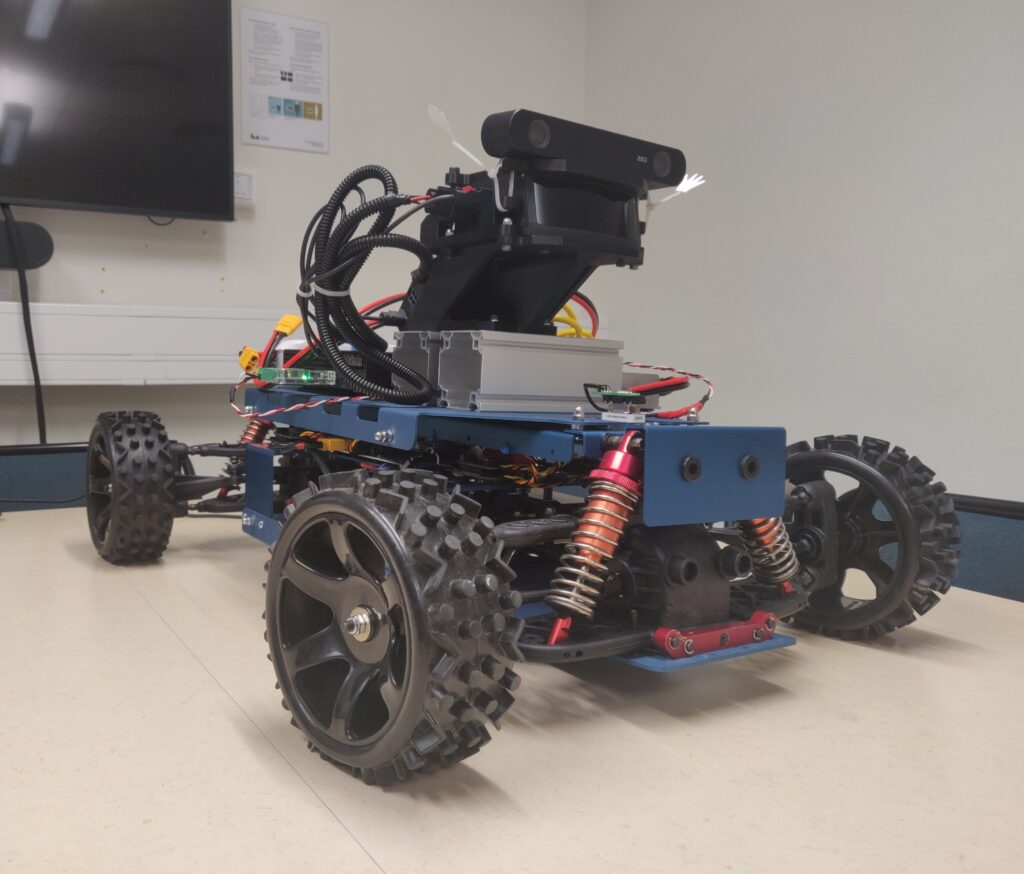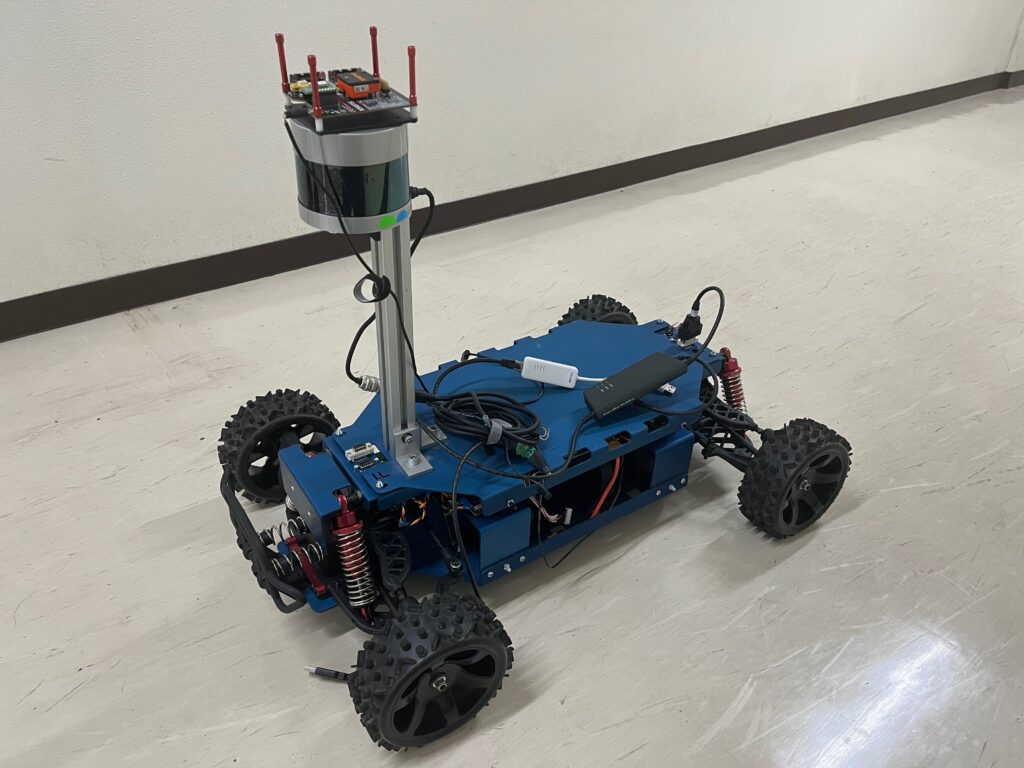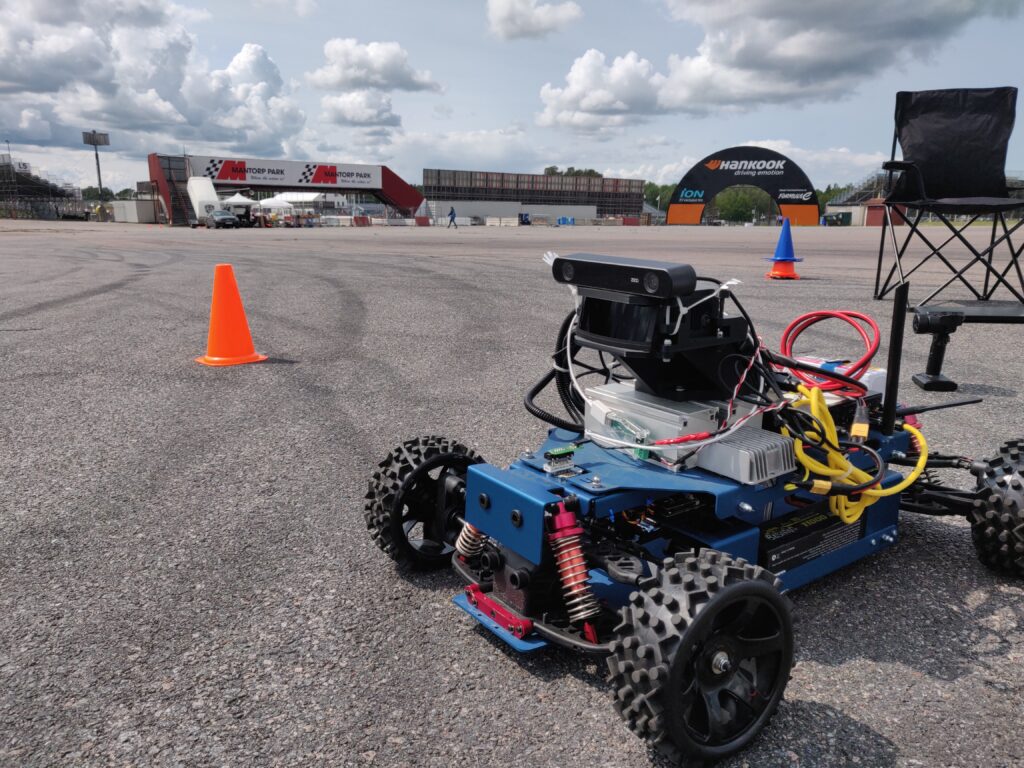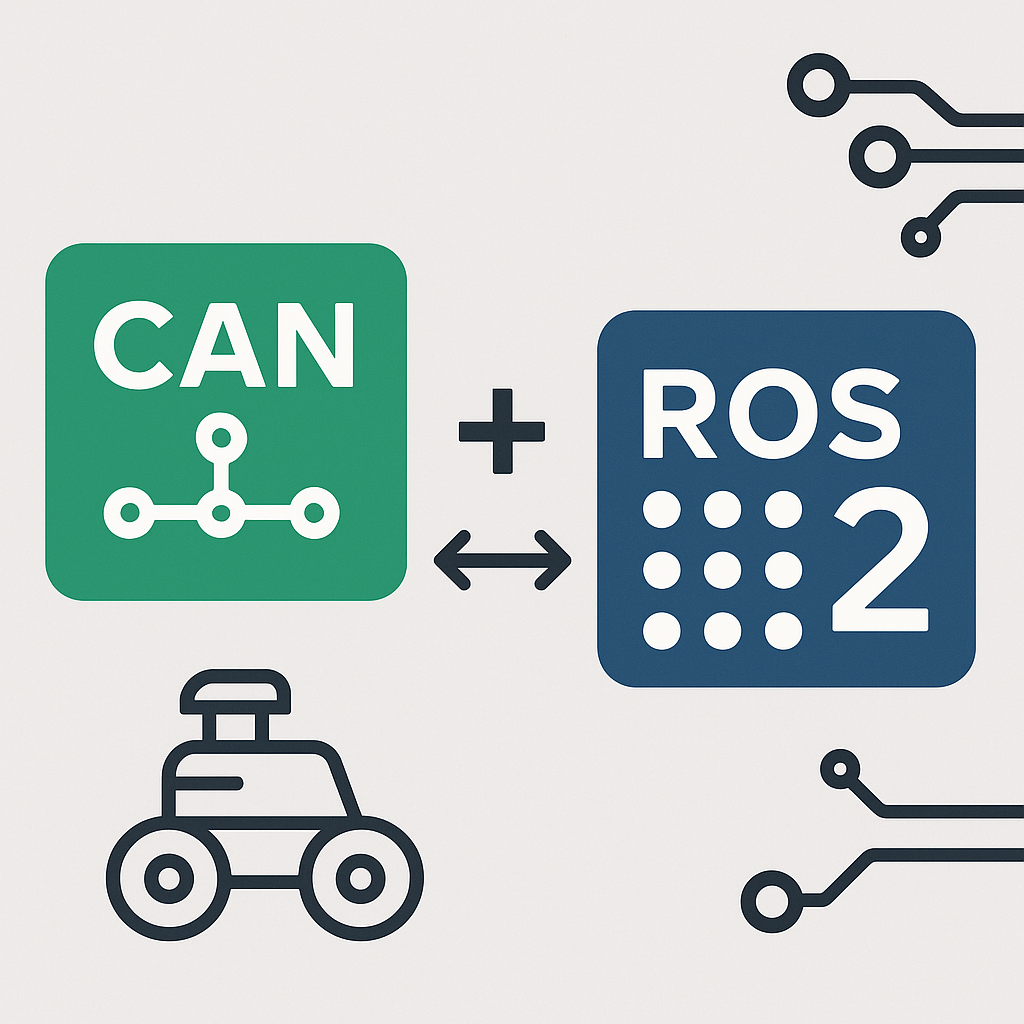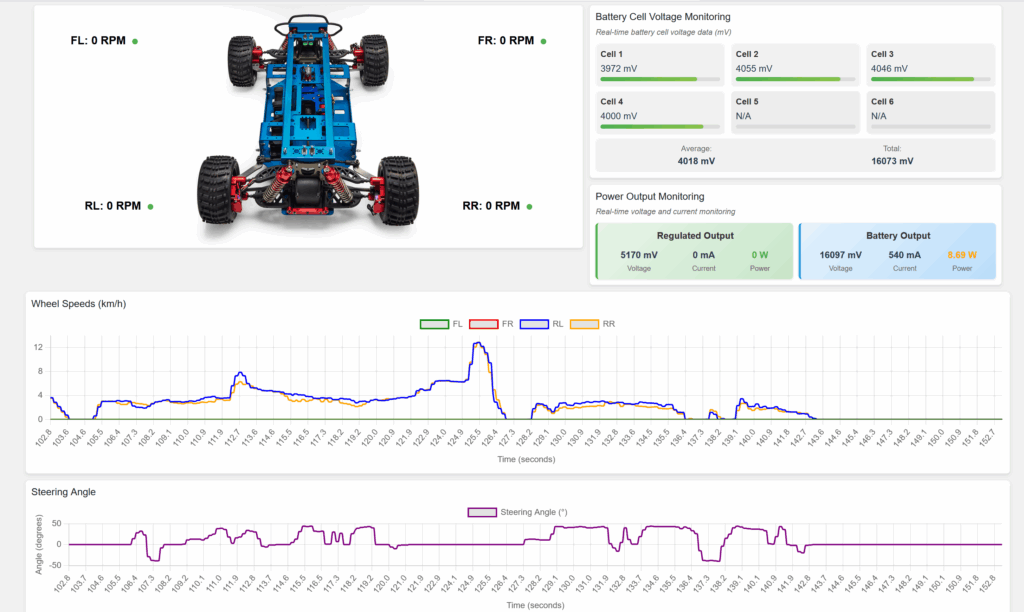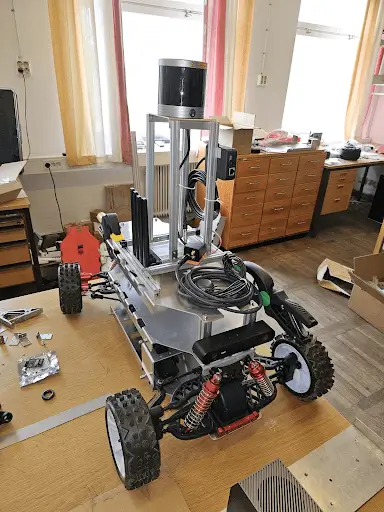Bridging the Gap: A Master’s Thesis on the CanEduDev Rover Paves the Way for More Reliable Autonomous Systems
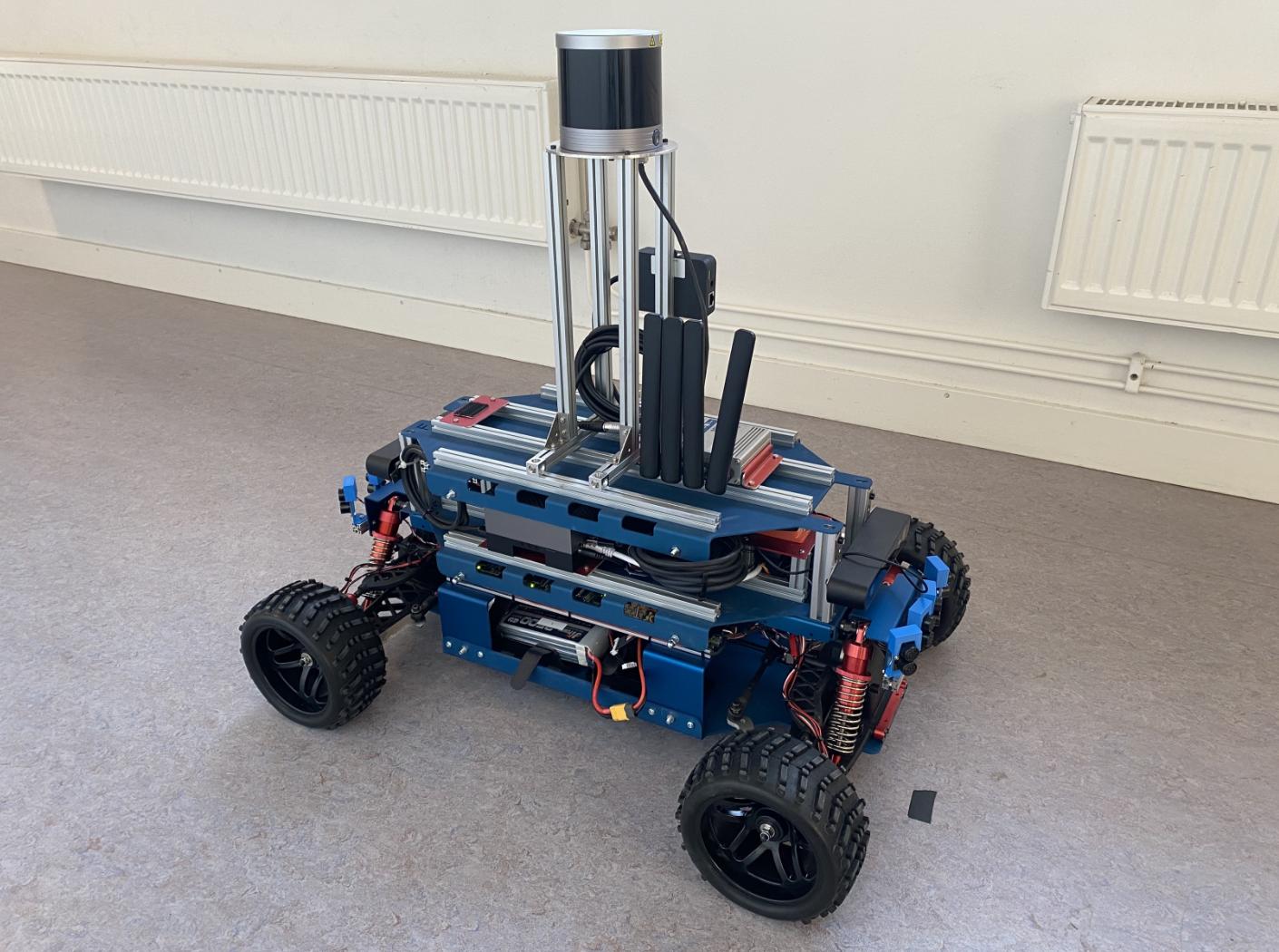
At CanEduDev, our mission is to bridge the gap between theoretical knowledge and practical application in autonomous systems. We empower the next generation of engineers with tools that turn complex theories into tangible results. For the past six months, we’ve had the pleasure of hosting Sitong Yang, a Double Master’s Degree student from KTH Royal Institute of Technology and EURECOM, who has done just that. His thesis project has not only produced groundbreaking results but has also perfectly demonstrated the power of our 1/5th scale Rover as a critical tool for students, educators, and industry professionals.
The Challenge: Closing the Simulation-to-Reality Gap
In the world of autonomous vehicles, simulation is everything. It allows for rapid development, testing, and validation of control strategies without the risks and costs of real-world trials. However, a persistent challenge known as the “simulation-to-reality gap” exists. Digital models, no matter how sophisticated, often struggle with long-term prediction accuracy due to compounding errors. A small discrepancy in the model’s understanding of vehicle dynamics can quickly spiral into a significant deviation from reality, making the simulation unreliable. Overcoming this is critical for developing safe and robust autonomous systems.
The Project: A High-Fidelity Digital Twin
Sitong’s thesis, titled “High-Fidelity Digital Twin: Probabilistic Dynamics Modeling for a Scaled Car,” tackled this challenge head-on. The goal was to create an incredibly accurate virtual representation—a “digital twin”—of our scaled Rover. This wasn’t just about creating another model; it was about developing a system that learns from its mistakes.
By introducing a novel framework called Multi-Step, Probabilistic Residual Learning (MS-PRL), the project augmented a baseline kinematic model with a sophisticated machine learning layer. This layer’s job is to predict and correct the errors of the baseline model, ensuring the digital twin’s behavior stays true to its real-world counterpart over long periods.
The Star of the Show: The CanEduDev Rover
At the heart of this research was the CanEduDev 1/5th scale autonomous vehicle. Every piece of data, every dynamic maneuver—from sharp turns to zig-zags—used to train and validate these advanced AI models was collected directly from our Rover. This speaks volumes about the platform’s capabilities. It’s not just a learning tool; it’s a research-grade platform that provides the high-fidelity, repeatable, and reliable data necessary for cutting-edge academic work.
Sitong’s project is a testament to the Rover’s value as a cost-effective and scalable solution for validating complex algorithms in a controlled environment.
The Groundbreaking Outcome: Stability Meets Efficiency
The results of the thesis are a significant step forward for the development of digital twins. The key findings include:
- Long-Term Stability Achieved: The research demonstrated that a multi-step training horizon significantly reduces long-term trajectory errors, effectively tackling the compounding error problem.
- The Best of Both Worlds: A systematic comparison of different sequence encoders (LSTM, GRU, Transformer, and MobileViT) revealed that the GRU architecture offers a remarkable trade-off. It provides statistically equivalent accuracy to the much larger Transformer model but with 32% fewer parameters and 25% faster inference time. This is a crucial finding for deploying efficient AI in real-world, resource-constrained systems.
In short, the project delivered a validated and practical method for building stable and efficient digital twins, a cornerstone for future autonomous vehicle development.
A Versatile Tool for Innovation
This thesis is a powerful illustration of how the CanEduDev Rover serves different needs across the ecosystem:
- For Students and Educators: It provides a hands-on platform to take on ambitious projects, applying advanced concepts in robotics and AI to a physical system and seeing real-world results.
- For Professionals and Researchers: It validates the Rover as a dependable tool for research and development. Companies can confidently use it to prototype, test, and validate algorithms, accelerating innovation cycles before committing to expensive full-scale vehicle testing. The platform’s open-source software further enhances its flexibility and appeal.
We extend our sincere congratulations to Sitong Yang for his exceptional work and invaluable contribution. His project embodies the spirit of innovation we champion at CanEduDev. We are proud to provide tools that not only educate but also empower users to push the boundaries of what’s possible in autonomous systems.
[Click here to read the full thesis]
Are you a student, researcher, or company looking to accelerate your work in autonomous systems? Discover the CanEduDev platform and start turning your vision into reality today.
our other blogs
How LiU Formula Student Is Using the CanEduDev Rover to Drive Autonomous Innovation
At Linköping University, the Formula Student Driverless Team has taken on the challenge of building an advanced autonomous vehicle platform. To accelerate their development and testing processes, the...
read moreBringing Autonomy to Life: Autoware Integration with the CanEduDev Rover
In Alex Carballo’s lab at Gifu University, cutting-edge research and hands-on robotics come together to create innovative solutions. In their latest project, headed by Tomoki Kuno, they showcase th...
read moreFrom Simulation to Skidpad: How the CanEduDev Rover is Accelerating LiU Formula Student’s Driverless Ambitions
For any team in the high-stakes world of autonomous racing, the gap between a promising algorithm in a simulator and a car executing a flawless run on the track is immense. It's a gap filled with long...
read moreCAN-ROS Integration: What Auto & Industry Need to Know
As someone working in automotive and industrial automation, you've likely faced this dilemma: How do we leverage modern robotics frameworks without compromising the real-time guarantees our systems re...
read moreCase Study: How Influx’s Use of the CanEduDev Rover Platform is Accelerating Automotive Development and Demo Capabilities
Case Study: How Influx's Use of the CanEduDev Rover Platform is Accelerating Automotive Development and Demo Capabilities Executive Summary Influx Technology is leveraging the CanEduDev Rover platfo...
read moreCanEduDev Rover: Progress Report on System Integration and Architecture
CanEduDev Rover: Technical Progress Update on System Integration We are excited to share a detailed update on the ongoing development of the CanEduDev Rover, a key project within our collaboration wi...
read more